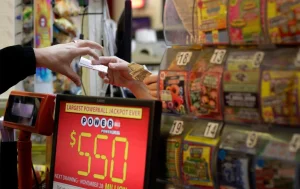Cryptocurrency Jackpots and Blockchain-Based Prize Distribution: The Future of Fair Play?

Imagine winning a massive jackpot. The numbers flash on the screen, your heart leaps… and then you wait. And wait. You fill out forms, deal with bank transfers, and maybe even face hefty taxes before you see a dime. It’s a process that can drain the excitement right out of a life-changing moment.

Well, what if it didn’t have to be that way? What if the entire system—from the spin of the wheel to the cash in your digital wallet—was transparent, instant, and provably fair? That’s the promise, the absolute core, of cryptocurrency jackpots and blockchain-based prize distribution. It’s not just a new way to pay out; it’s a fundamental rethinking of trust in the world of online wins.
Beyond the Hype: What Are Crypto Jackpots, Really?
At its simplest, a cryptocurrency jackpot is a prize pool denominated in digital assets like Bitcoin (BTC), Ethereum (ETH), or a stablecoin like USDT, rather than traditional fiat currency. But honestly, that’s just the surface. The real magic—the part that changes everything—is the underlying blockchain technology.
Think of a blockchain as a public ledger that everyone can see but no one can alter. It’s like a communal Google Sheet where every transaction is recorded, time-stamped, and locked in place permanently. When this technology manages a jackpot, it creates a system of radical transparency that simply wasn’t possible before.
The Engine of Trust: How Blockchain Prize Distribution Works
Here’s the deal with traditional systems: you have to trust that the company is playing fair. You trust their random number generator, you trust their accounting, and you trust their payout process. With blockchain, that trust is shifted from a central authority to verifiable code.
The process for blockchain-based prize distribution typically looks like this:
- Provably Fair Gaming: Before you even play, the system generates a cryptographic seed. You get a hash of it—a kind of digital fingerprint. After the game, you can use that hash to verify that the outcome was truly random and wasn’t manipulated after the fact. It’s like being able to re-count the lottery balls yourself to confirm the win.
- Smart Contract Escrow: The jackpot funds are locked away in a smart contract—a self-executing piece of code on the blockchain. This acts as an impartial, digital escrow agent. The money is there, it’s visible on the blockchain, and no single person can touch it until the predefined conditions are met.
- Instant, Borderless Payouts: The moment a winner is verified, the smart contract automatically triggers. The cryptocurrency is sent directly to the winner’s digital wallet. No intermediaries. No processing delays. It’s a near-instantaneous transfer, whether the winner is next door or on another continent.
Why This Is a Game-Changer for Players and Platforms
The benefits of this model are, frankly, massive. They address some of the biggest pain points in the online gaming and prize industry.
| For Players | For Platforms |
| Transparency you can actually verify | Reduced operational costs (fewer payment processors) |
| Dramatically faster access to winnings | Access to a global market without currency friction |
| Often lower fees and greater anonymity | Enhanced trust and credibility as a selling point |
| True proof that games are fair | Automation of payout processes |
Let’s be real for a second. The fear of rigged games or delayed payments is a huge barrier for many potential players. Blockchain-based systems don’t just say they’re fair; they prove it. That’s a powerful shift in the relationship between a platform and its users.
The Flip Side: Challenges and Things to Keep in Mind
Now, it’s not all sunshine and rainbows. The crypto space, as you probably know, has its own set of hurdles.
Volatility is a big one. Winning 1 Bitcoin is fantastic… unless the market crashes the next day. This is why many platforms are turning to stablecoins—cryptocurrencies pegged to a stable asset like the US dollar—for their jackpots. It gives you the benefit of blockchain without the rollercoaster price ride.
Then there’s the regulatory gray area. Governments around the world are still scrambling to figure out how to regulate crypto and everything built on it. This can create uncertainty for both operators and players. And, of course, you have to be comfortable with managing your own crypto wallet and private keys. It’s a new kind of responsibility.
The Landscape Today: From Casinos to Community Pots
So where is this actually happening? Well, the most obvious application is in crypto casinos and online gambling platforms. They’ve been early adopters, offering massive Bitcoin jackpots that are often linked across a network of sites, creating prize pools that can run into the millions.
But the concept is spreading. We’re seeing it pop up in:
- Decentralized Prediction Markets: Where you can bet on real-world events.
- NFT Gaming and Play-to-Earn Models: Where in-game treasures and rewards are distributed on-chain.
- Community Airdrops and Giveaways: Even projects not related to gaming are using smart contracts to distribute tokens fairly to thousands of users at once.
The underlying principle is the same: using code to create a level of fairness and efficiency that traditional systems struggle to match.
A Transparent Future for Fortunes
Cryptocurrency jackpots are more than a novelty. They represent a fundamental shift towards a system where you don’t have to take anyone’s word for it. The ledger doesn’t lie. The smart contract doesn’t stall. The prize distribution is as seamless as the technology that enables it.
Sure, the technology is young and the road ahead has bumps. But the core idea—replacing blind trust with verifiable proof—is incredibly powerful. It challenges the very architecture of how we handle value and reward online. The question isn’t just about bigger jackpots anymore. It’s about better ones. More honest ones. And that, in the end, might be the most valuable win of all.








